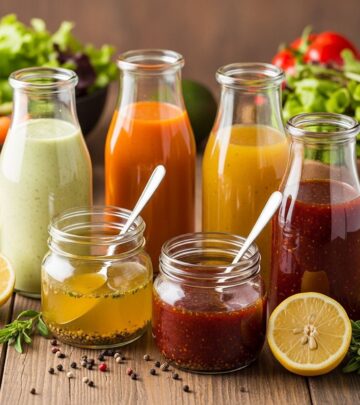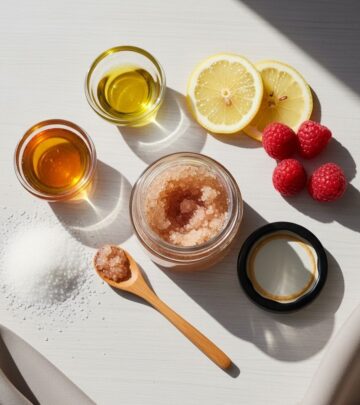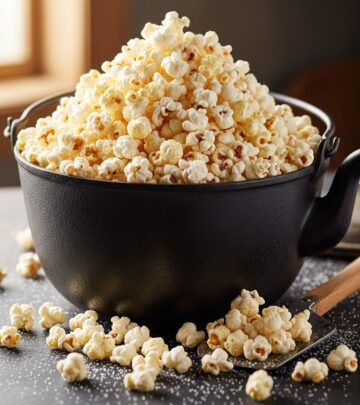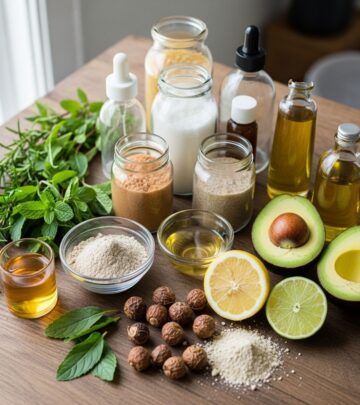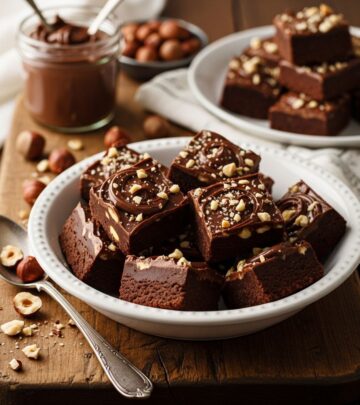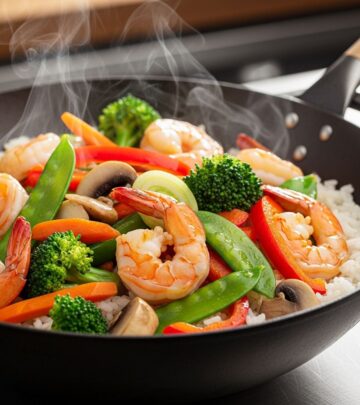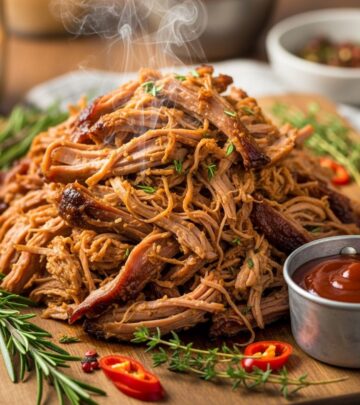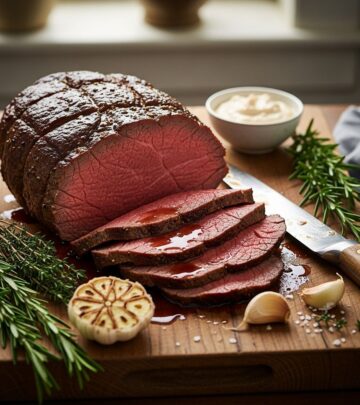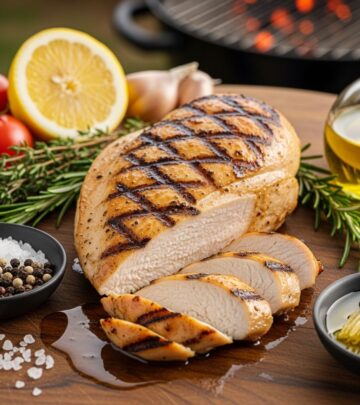How to Instantly Improve Store-Bought Barbecue Sauce
Unlock deeper tang and balanced sweetness with simple pantry upgrades you already have.
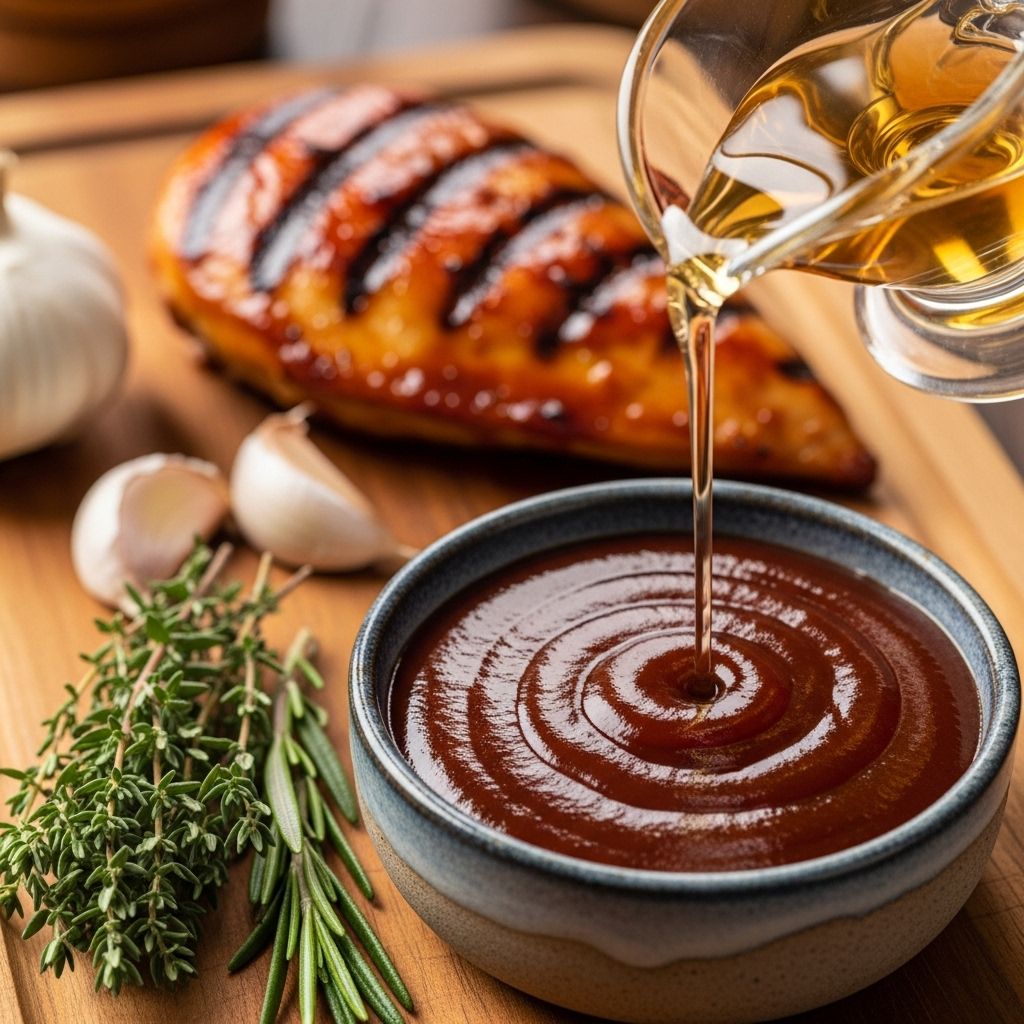
Store-bought barbecue sauce is a quick fix for weeknight dinners, summer barbecues, or whenever you crave tangy, smoky, and sweet flavors. But no matter the brand, bottled sauces often fall flat: they’re too sweet, too thick, sometimes oddly smoky, and rarely achieve the harmony of homemade barbecue sauce. Fortunately, a few simple adjustments—most importantly, one easy pantry ingredient—can instantly transform a jar of store-bought sauce into something that tastes freshly made and expertly balanced.
Why Store-Bought Barbecue Sauce Needs Help
The average supermarket barbecue sauce is designed for mass appeal and long shelf life. As a result, most brands rely heavily on sweeteners like high-fructose corn syrup and tend to have a thick, gloppy consistency. Their flavor profiles are generally one-dimensional, missing the bright acidity and subtle complexity of sauces found at your favorite barbecue joint or in homemade recipes.
- Excessive sweetness: The dominating sugary notes mask the tang and spice barbecue is known for.
- Lack of brightness: Acidity is key for barbecue sauce, but most bottled brands keep it minimal, favoring sweetness and shelf-stable stability instead.
- One-note smokiness: Many bottled sauces use liquid smoke flavoring to approximate the slow-cooked character of genuine barbecue, often resulting in a harsh, artificial taste.
- Gloppy texture: The syrupy, gelatinous consistency coats food but rarely penetrates or enhances it.
A Chef-Approved Trick to Upgrade Barbecue Sauce
Is there a quick way to make any barbecue sauce taste fresher and more homemade? Yes—and it’s as simple as adding a splash of vinegar. This single pantry staple is the transformative ingredient professional cooks and food writers swear by for unlocking depth and balance in bottled sauces.
Vinegar enhances brightness and cuts through cloying sweetness, making other flavors—like smoke, tomato, spice, and fruit—stand out. In one step, your sauce tastes tangier, more delicious, and closer to the complex sauces of regional barbecue traditions.
Which Vinegar to Use?
- Apple cider vinegar: Adds a fruity acidity, classic to many barbecue sauces, especially those from the Carolinas. It’s bold enough to balance sweetness but not overpowering.
- Rice vinegar: Mild, slightly sweet, great for balancing without changing the sauce’s fundamental character.
- Red wine vinegar: Provides a mellow, nuanced acidity that enriches tomato-based sauces.
- Lemon or lime juice: For additional freshness or if you’re out of vinegar, citrus brightens and sharpens flavor while also adding subtle floral notes.
Start with 1-2 teaspoons of your chosen acid, stir thoroughly, taste, and adjust as needed. The sauce should go from syrupy and flat to vibrant and exciting, with the acidity tempering excess sugar and thick texture without overpowering the base flavor.
How to Adjust Store-Bought Sauce to Taste Homemade
Improving bottled barbecue sauce is largely about balancing flavors and enhancing texture, using items you likely have at home. Below are the most effective tweaks for common issues:
1. If Your Sauce Is Too Sweet
- Add acid: A splash of apple cider, rice, or red wine vinegar instantly lifts and balances sweetness.
- Fresh citrus: Lemon or lime juice can amplify tang and add complexity, especially when the sauce is especially sugary.
2. If the Sauce Needs More Heat
- Hot sauce: A few dashes of your favorite hot sauce—Tabasco, Crystal, Cholula, or even Sriracha—adds spark and depth. Add in small increments (1/2 teaspoon at a time) and taste as you go.
- Cayenne pepper or chili flakes: For subtle, dry heat, stir in a pinch or two of cayenne or crushed red pepper.
3. If the Sauce is Too Smoky or Artificial
- Add fruit juice: Pineapple, orange, apple, or mango juice introduces natural sweetness and complexity that softens harsh liquid smoke flavors.
- Grated ginger: Fresh ginger tempers and balances strong, synthetic smokiness with gentle heat and aromatic freshness.
- Honey or brown sugar: A small spoonful, paired with a dash of heat, can round off bitterness and bring flavors together (use sparingly if the sauce is already sweet).
4. If the Sauce is Too Gloppy or Thick
- Thin with vinegar or juice: Adding acidity not only balances flavor but also loosens the texture, making sauce easier to brush or pour over food.
- Broth or water: For a lighter touch, mix in a tablespoon or two of low-sodium chicken or vegetable broth, or simply water.
Upgrading Store-Bought Sauce: A Quick Reference Table
| Issue | Fix | Extra Tip |
|---|---|---|
| Too sweet | Add vinegar or citrus juice | Use fresh lemon/lime for brightness |
| Too thick | Thin with vinegar, juice, or broth | Start with 1 tsp at a time |
| Too smoky/artificial | Add fruit juice or ginger | Pair sweet + heat (eg. honey + Tabasco) |
| Flat/flavorless | Add savory (Worcestershire), heat, or acid | Try a dash of hot sauce for depth |
| Needs complexity | Blend spices or herbs | Paprika, garlic, cumin, or onion powder |
Beyond Vinegar: Pantry Ingredients That Make a Difference
After vinegar, there are several other simple pantry staples that can upgrade even the cheapest bottled sauce:
- Worcestershire sauce: Adds umami, depth, and subtle savoriness. Just a few dashes can transform tomato-based sauces.
- Garlic or onion powder: For a more robust, savory kick; a dash or two is enough.
- Mustard (prepared or powder): Adds tang and spice, great for balancing out sweetness and giving a subtle bite.
- Butter: Melting a small knob of butter into the sauce adds sheen and rounds out any rough edges.
- Fresh herbs: Chopped parsley, chives, or even cilantro can add freshness, especially when grilling chicken or vegetables.
How to Choose the Right Store-Bought Sauce
While you can improve most supermarket brands with the tricks above, selecting a high-quality bottled sauce as your base makes all the difference. Look for:
- Simple ingredient list: Avoid sauces with high-fructose corn syrup as the first ingredient. Opt for those using real sugar, tomato puree, and recognizable spices.
- Regional styles: Carolina, Kansas City, Memphis, and Texas-style bottled sauces reflect unique flavor traditions—choose one that aligns with the dish you’re preparing.
- Balanced flavor: Test a few spoonfuls before using. The best bottles offer tang, smoke, sweetness, and spice in harmony, making less adjustment necessary.
Top Tips for Testing Sauce Before Use
- Always taste before and after making adjustments, starting with small additions of each fix.
- Use separate spoons for tasting to avoid contamination, especially when adding vinegar or citrus, as flavors meld quickly.
Getting That Homemade Feel: Final Touches
Once you’ve adjusted your sauce, let it sit for at least 10 minutes—ideally an hour if you have time—so flavors meld fully. For the best results, use your upgraded sauce as a marinade, baste, or dipping condiment. Slightly heating the sauce improves texture and helps flavors meld (but don’t boil, as this can sharpen acidity too much).
- For marinade: Mix adjusted sauce with a splash of water or oil, then coat your meat, poultry, or tofu and let sit for at least 30 minutes (up to overnight).
- For basting: Brush the sauce over grilling food in the last 5-10 minutes of cooking for sticky, caramelized flavor without burning the sugars.
- For dipping: Warm gently and serve alongside freshly cooked meats or vegetables.
Frequently Asked Questions (FAQs)
Q: Why does bottled barbecue sauce taste so sweet?
A: Most brands use large quantities of corn syrup or sugar to ensure mass appeal and preserve shelf life, resulting in overt sweetness that can mask other flavors.
Q: What’s the best vinegar to use for improving barbecue sauce?
A: Apple cider vinegar is the top choice for adding tang and fruity acidity, but rice vinegar, red wine vinegar, and even white wine vinegar are all effective depending on your taste preferences.
Q: Can I use lemon or lime juice instead of vinegar?
A: Yes; citrus brings bright, floral acidity and is especially good in fruit-based or very sweet sauces.
Q: How can you fix a barbecue sauce that tastes artificially smoky?
A: Mix in a splash of fruit juice or some grated ginger to tone down harsh liquid smoke, and consider balancing with a bit of heat and a natural sweetener.
Q: How do you make store-bought barbecue sauce less thick?
A: Add small amounts of vinegar, juice, water, or broth and stir thoroughly until you achieve your preferred consistency.
Expert Tips for BBQ Success
- Layer flavors: Adjust sauce in stages, letting each addition blend before adding more.
- Start with better sauce: If possible, buy higher-quality bottles with cleaner ingredient lists for easier and more delicious upgrades.
- Experiment: Try different acids, spices, or even a splash of whiskey for unique takes. Record your favorite combinations to replicate later.
Conclusion: Homemade-Quality Barbecue Sauce from Any Bottle
With one simple pantry addition—vinegar—you can revive any store-bought barbecue sauce and reclaim the delicious, balanced flavors of homemade versions. With a few more tweaks like citrus, spice, or herby freshness, you’ll never settle for bland, gloppy, or overly sweet barbecue sauce again. Armed with these tricks, your next cookout will taste like you spent hours making your own signature sauce from scratch!
References
Read full bio of Sneha Tete

